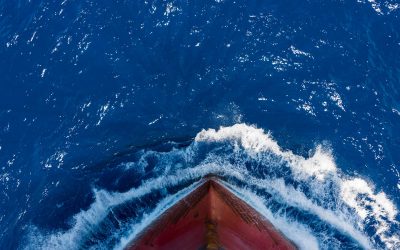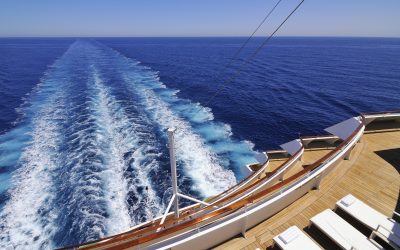Seafarer Mental Health and Wellbeing
In very few industries is employee mental health such a critical issue as maritime. Complications in working at sea have been well documented, including issues such as extended periods at sea and reduced shore leave.
The toll taken on seafarers in terms of feelings of isolation, separation from family and loneliness can be severe. Plenty of valid advice has been distributed on methods of managing mental health and wellbeing including exercise, rest, socialising and relaxation.
However, there are two key tools not so widely talked about: managing mindset and an understanding of how to manage energy. These are incredibly powerful in combating stress and mitigating it’s damaging effects.
In this post we’ll explore why managing your energy is so important for your mental health and offer some practical advice. It is especially pertinent at sea, where fatigue from long hours and limited sleep are major issues.
How do energy levels impact us?
Low energy levels invariably result in low mood, whether that’s feeling sad, anxious, short tempered and angry- any negative emotion you can think of. It also affects mental capacity in the workplace leading to reduced performance.
Naturally it also impacts physical capacity too, making the working day even harder and increasing the likelihood of poor quality work and in some cases accidents.
So how do we manage our energy?
Inputs and outputs play a major role. As an example if you consume poor quality food and don’t keep hydrated, your physical output will suffer, hence the often stated advice to eat healthy, nutritious food as a way to combat stress, along with staying hydrated.
When we are dehydrated, the brain interprets that as a danger signal and releases stress hormones to help us deal with what it interprets as a stressful situation- adding to the physical symptoms of stress that you may be experiencing.
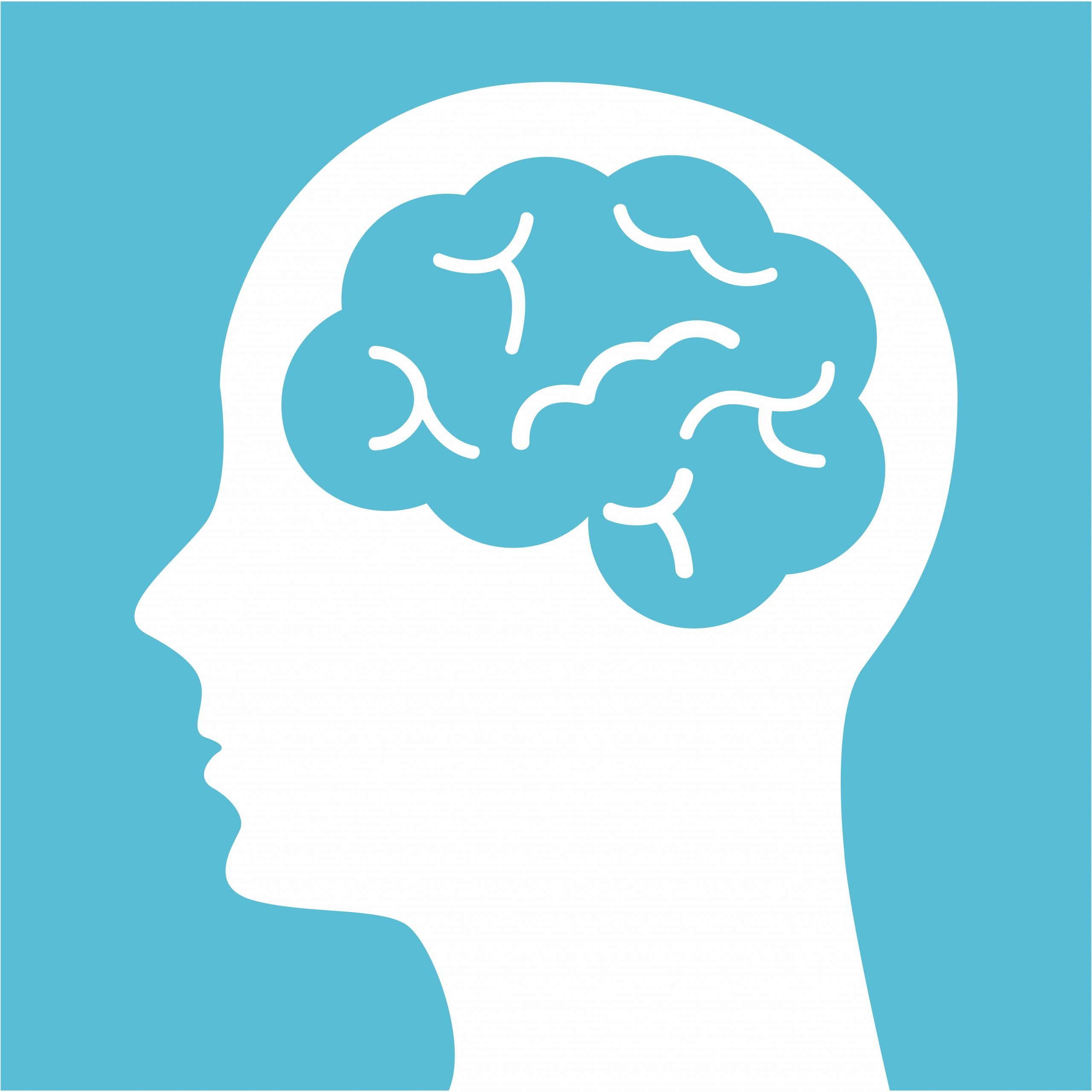
FREE Mental Heath and Wellbeing training package
Advice for individual seafarers and also to train your teams.
This package contains a training video offering advice, hints and tips to create and maintain optimum mental health and wellbeing among seafarers as well as facilitation notes for delivering the training to a group.
Consider that you can’t expect your mental health to be where you want it to be if you neglect your physical health…
Inputs also apply to what you consume mentally. To many people relaxation is scrolling through their social media feeds. Whilst understanding that social media can be a way for people to maintain a sense of contact with home, we can consume so much content that it impacts our ability to focus, maintain a good attention span and retain knowledge and information. It can also lead to overwhelm as there is only so much information that we can absorb, again leading to feelings of stress.
Creating energy to improve physical and mental wellbeing
Exercise is a powerful tool for mental health—not just for releasing ‘feel-good’ chemicals like endorphins, dopamine, and serotonin, but also for creating energy. That’s why people often feel calmer and happier after working out.
Paradoxically it is when people least feel like exercising that they derive most benefit, so if you’re fatigued and in a low mood exercise is probably the last thing you feel like doing, but potentially the most beneficial. Exercise also clears the stress hormone adrenaline from your body, leaving you feeling calmer, more relaxed and very importantly more likely to sleep better.
Stress triggers the brain’s fight-or-flight response, releasing adrenaline—even when threats aren’t life-threatening. The only way to reduce adrenaline is to burn it off through movement. This doesn’t mean hours in the gym—just 30 minutes of brisk walking or any heart-pumping activity can make a difference.
The importance of sleep on energy levels? This can be summed in one word- crucial. We know that a lack of sleep is frequently cited as a major issue among seafarers, so how can you address that?
6 tips for seafarers to improve their sleep quality and duration
- Exercise: Reducing the mount of stress hormones in the body through exercise is an excellent way to boost not only the duration but the quality of sleep. The calming effects of exercise will naturally lend themselves to being able to relax and wind down before bedtime to facilitate a good sleep.
- Fresh air: Higher levels of oxygen and clean air have been shown to be beneficial for sleep.
- Wind-down routine: This signals to your brain that it is time to prepare for sleep and can trigger a relaxation response. Your routine can be anything that you find relaxing- it could be winding down with a book, sitting quietly, meditating or journaling to empty your thoughts. Breathing exercises and focusing specifically on the breath will help to slow your thoughts and allow you to feel more relaxed.
- Prepare your cabin for sleep: Turn the lights down low, set a comfortable temperature and keep your bed clear, only using it for sleep where possible. Use blackout blinds or curtains in the period before and during sleep if your cabin isn’t dark enough, or use an eye mask. If noise is an issue, consider earplugs, listening to soothing sounds, music or white noise.
- Caffeine: You should try to avoid consuming caffeine for at least 6 hours before attempting sleep. Whilst caffeine can be effective in enhancing cognitive functioning and it’ stimulant properties can enhave productivity, it’s these very properties that can cause problems getting to sleep and sleep disturbances.
- Electronic devices: The impact of blue light on sleep has been well documented, so ideally you should avoid using a phone, laptop, PC or TV in the hours prior to bedtime. In reality, many people may watch TV until they go to bed, or even in bed, which can indeed be relaxing to doze off to. Referring back to the quality of your inputs, much of this depends on what you are consuming – something stimulating and thought provoking isn’t conducive to a good nights sleep. There is constant stimulation of the mind by consuming the huge amounts of information on our devices, such as through social media on a mobile phone.
The impact of mindset on mental health and wellbeing.
Our quality of life is often said to be governed by the quality of our thoughts. We have to take responsibility for this and for our mindset.
Whilst absolutely not downplaying the role of external circumstances on stress experienced by seafarers, the level of stress felt and the subsequent impact can be reduced shifting our mindset and addressing internal factors.
There are events that happen everywhere that we cannot control- but what we have absolute control over is our responses and our thoughts around events. When it comes to uncomfortable or negative situations we always have 3 options: change the situation, leave the situation or change our thoughts and perspective about it.
Wishful thinking or reality?
Shift your mindset—every negative has a positive if you look for it. Training your brain to see this builds resilience, reduces stress, and rewires your response to challenges.
Gratitude is a powerful emotion that fosters feelings of wellbeing. Taking just a few minutes out of your day upon waking to write down or simply think of 3 things for which you are grateful can help reduce the negative feelings you may be encountering. Similarly, doing the same prior to sleeping can have a similar effect, along with writing down any troubling thoughts you may have (journalling). This can help you to see them in a different light and with increased clarity instead of them running through your mind.
Is this the same as positive thinking? No.
Positive thinking alone isn’t enough—action is what truly makes a difference.
Your actions shape your mental well-being
Take stress, for example. If you isolate yourself, skip meals, or neglect hydration, your brain interprets this as a threat and releases stress hormones, making you feel worse. Instead, act as if you feel fine—socialize, exercise, eat well, and engage in activities you enjoy. Make time for something fulfilling every day.
Absorbing activities help shift focus away from stress. Your energy flows where your attention goes, so redirect it toward learning a skill, working on a qualification, or setting personal goals.
The brain is a problem solving machine- if you don’t look for challenges or objectives in a positive manner they have a habit of finding you in a not so positive way. It will try and solve problems that don’t really exist or exacerbate minor problems.
Goals you set yourself don’t need to be huge- in fact the best goals are those that stretch you but are realistic. They could be getting fit, staying fit, getting stronger or eating healthily- things you can work towards on a daily basis and get that satisfaction from contributing towards them on a daily basis and benefit from the good feelings that brings.
Where can seafarers can go for help with mental health and wellbeing?
We hope that the advice and tips we have published have been helpful and thought-provoking.
We have created a FREE package to aid seafarers here.
International Seafarers Welfare and Assistance Network (ISWANS)
ISWANS is an international maritime charity which works to improve the lives of seafarers and their families with services, resources, strategies and advocacy.
They operate SeafarerHelp, a confidential 24/7 365 days a year multilingual helpline to support seafarres and also their families.
Phone: +44 (0)20 7323 2737 (request a call back: www.seafarerhelp.org/callback)
Email: help@seafarerhelp.org
Live Chat: via www.seafarerhelp.org
WhatsApp: +44 (0)7909 470732
Facebook: facebook.com/seafarerhelp
SMS: +44 (0)7860 018538
Skype: info-seafarerhelp.org
ВКонтакте: vk.com/seafarerhelpclub
Their website also has a comprehensive resources section including a Good Mental Health Guide for Seafarers.
Seafarer mental health is an area of key concern for The Mission to Seafarers. They can be found in over 200 ports in 50 countries and are available 365 days per year.
Their support includes
- Visiting ships to check crew members are well
- Providing SIM cards to connect you with loved ones and transport when you’re on land
- Help connecting you to other organisations, or speaking to them on your behalf
- Emergency support
- Seafarers’ centres, where you can relax, connect to wifi, and have something to eat and drink
The maritime industry’s best e-learning content
Unparalleled breadth and quality of content. We offer the most comprehensive library of maritime blended learning content ever assembled.
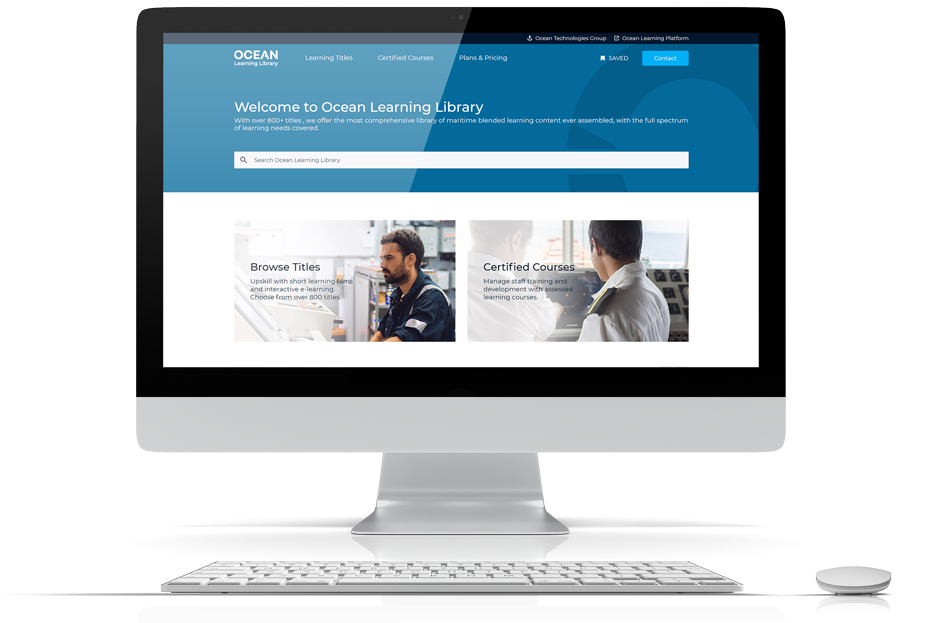
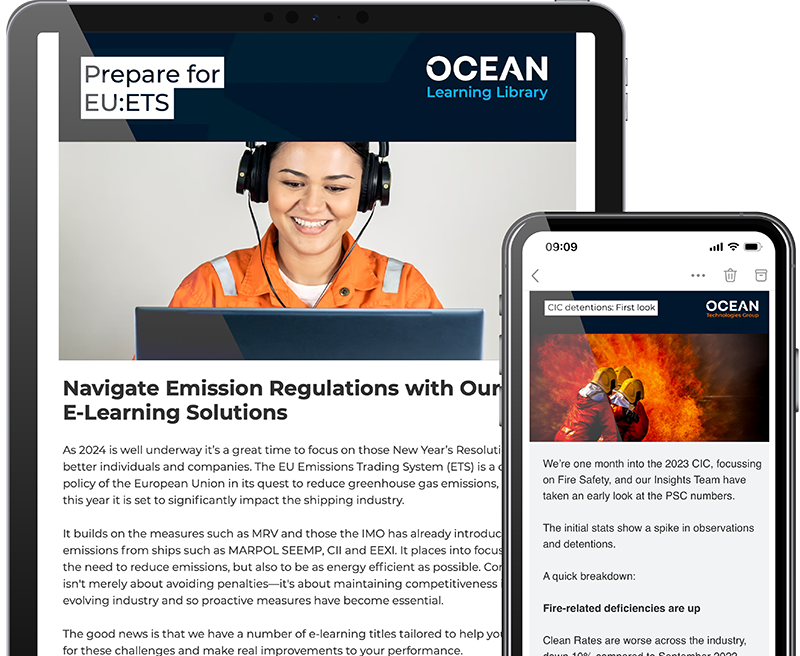
Subscribe to our Newsletter
Stay connected with our guides, insights, news and more.
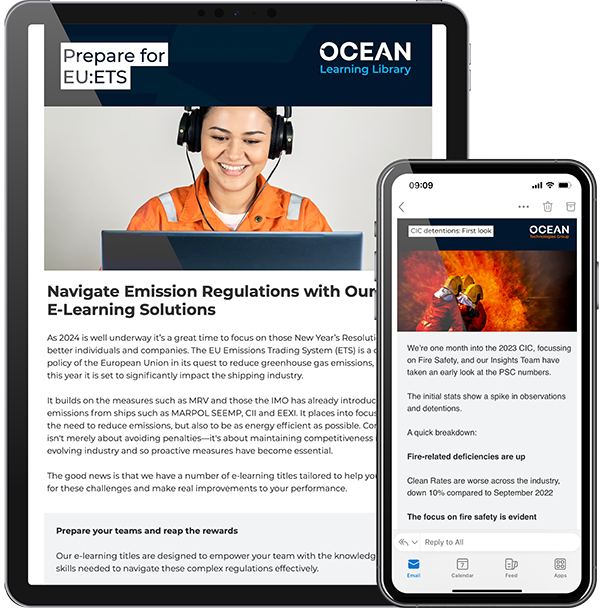
Subscribe to our Newsletter
Stay connected with our guides, insights, news and more.
Read related blogs
Insights from the “G20 Ocean Dialogue – A Maritime Just Transition”
Insights from the “G20 Ocean Dialogue – A Maritime Just Transition” As supporters and contributors to the work of the Maritime Just Transition Task force shaping the training standards for new fuels, OneOcean & Ocean Technologies Group participated alongside...
Transitioning The Cruise Industry to New Fuels
Transitioning The Cruise Industry to New FuelsThe cruise industry is the most technologically advanced sector within the maritime industry. Therefore, considering international regulatory efforts to significantly reduce carbon emissions over the coming years, it is no...
Are we ready to embrace Ammonia as a Maritime Fuel?
Are we ready to embrace Ammonia as a Maritime Fuel?With the global maritime industry grappling with the urgent need to reduce its carbon footprint, ammonia is quickly emerging as a viable alternative fuel. The impending arrival of the first ammonia-powered vessels by...

